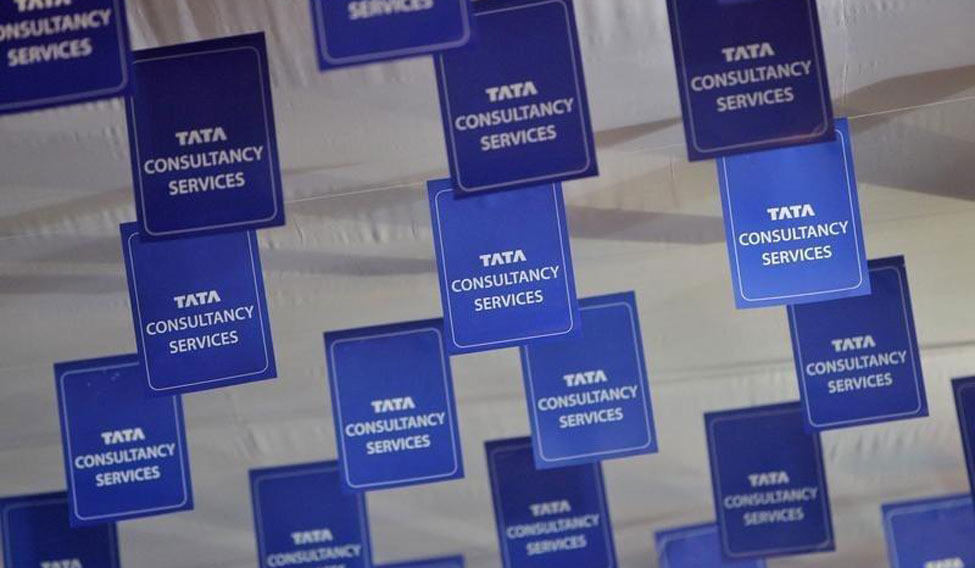Tata Consultancy Services, the country's largest software services exporter begins its huge share buyback offer worth Rs 16,000 crore from Thursday. The company had received shareholder approval for the same last month and recently also received green signal for the same from the Securities and Exchange Board of India.
The buyback, which closes on May 31, consists of 56 million equity shares, or about three per cent of the total equity capital. TCS is buying the shares at Rs 2,850 per share. The stock closed at Rs 2,451.35 on Wednesday.
If successful, the buyback will be the country's largest. Previously, Reliance Industries had bought back shares worth Rs 10,400 crore in 2012.
TCS has been sitting on cash worth over Rs 43,100 crore and there have been growing voices from investors that IT services companies should return some of the excess cash to shareholders by way of dividends of share buybacks.
TCS' rival Infosys recently approved a revised capital allocation policy and said that for the fiscal year ending March 2018, it would pay up to Rs 13,000 crore to shareholders by way of dividends or share buybacks.
Smaller software services firm Mphasis too, has approved a buyback of shares worth over Rs 1,100 crore. However, its not just IT companies that are buying back shares. Other current buyback issues include those from chemicals maker GHCL, Gujarat Apollo Industries and Ramco Cements.
According to data from Prime Database, a firm that tracks capital market activity, as many as 49 companies bought back shares worth Rs 34,468 crore in 2016-17. This is significantly higher than the previous financial year (2015-16) when 16 companies bought back shares worth Rs 1,834 crore.
In the financial year-ended March 2017, state-owned companies like Nalco, MOIL, NMDC and Bharat Electronics repurchased shares worth Rs 15,645 crore as a part of government's wider disinvestment programme. The government was the largest shareholder in these companies.
What is a buyback?
When a company announces a buyback it essentially means it wants to repurchase some of the shares from existing shareholders. Usually, a company will buy back shares at a price higher than the prevailing stock price, in order to attract shareholders to sell their holdings.
In an open market purchase, a public shareholder can sell some or all of his/her shareholding back to the company, but it is not mandatory to do so. Buyback offers need approval from shareholders and the market regulator Sebi.
If a company has announced a tender offer, it would buyback shares at the fixed price and even promoters can sell some of their shares to the company. The price may vary if the company is buying shares directly from the open market.
Why are so many companies buying back shares?
Analysts cite several reasons behind the surge in companies buying back shares over the last one year. Many companies have had decent cash on their books, which usually gets channeled back into expansion of the business. However, with existing capacities still not being fully utilised, companies are still not in a mood to expand and so the cash is lying idle. Furthermore, buying back shares and thus returning some wealth to shareholders is also more tax efficient than giving dividends, add analysts.
“If the company is generating good cash flows, when in growth phase, those cash flows are redeployed by the management in the business. But with demand remaining tepid in several sectors like IT, which is also facing other headwinds, companies may choose to use the cash to buyback the shares rather than invest in capital expenditure,” said Ajay Bodke, CEO and chief portfolio manager at Prabhudas Lilladher.
Companies may also opt for a buyback if they feel the stock is undervalued.
“The management should ideally know the actual state of the business and expected cash flows over the next few years. Based on that, an assessment is made on the fair value of the business. If the market capitalisation is lower than what the management perceives to be the fair value, they may opt for a buyback,” added Bodke.
The IT sector is facing regulatory headwinds in the US, and the valuations of the companies in the sector have come off from their highs in the past. Automation and artificial intelligence also weigh on jobs across the sector.
TCS is currently valued at around 15-16 times one year forward earnings expectations, in comparison to the 20-21 times it was valued three years ago. A buyback now could help reward shareholders and will also improve the company's earnings per share over time.






